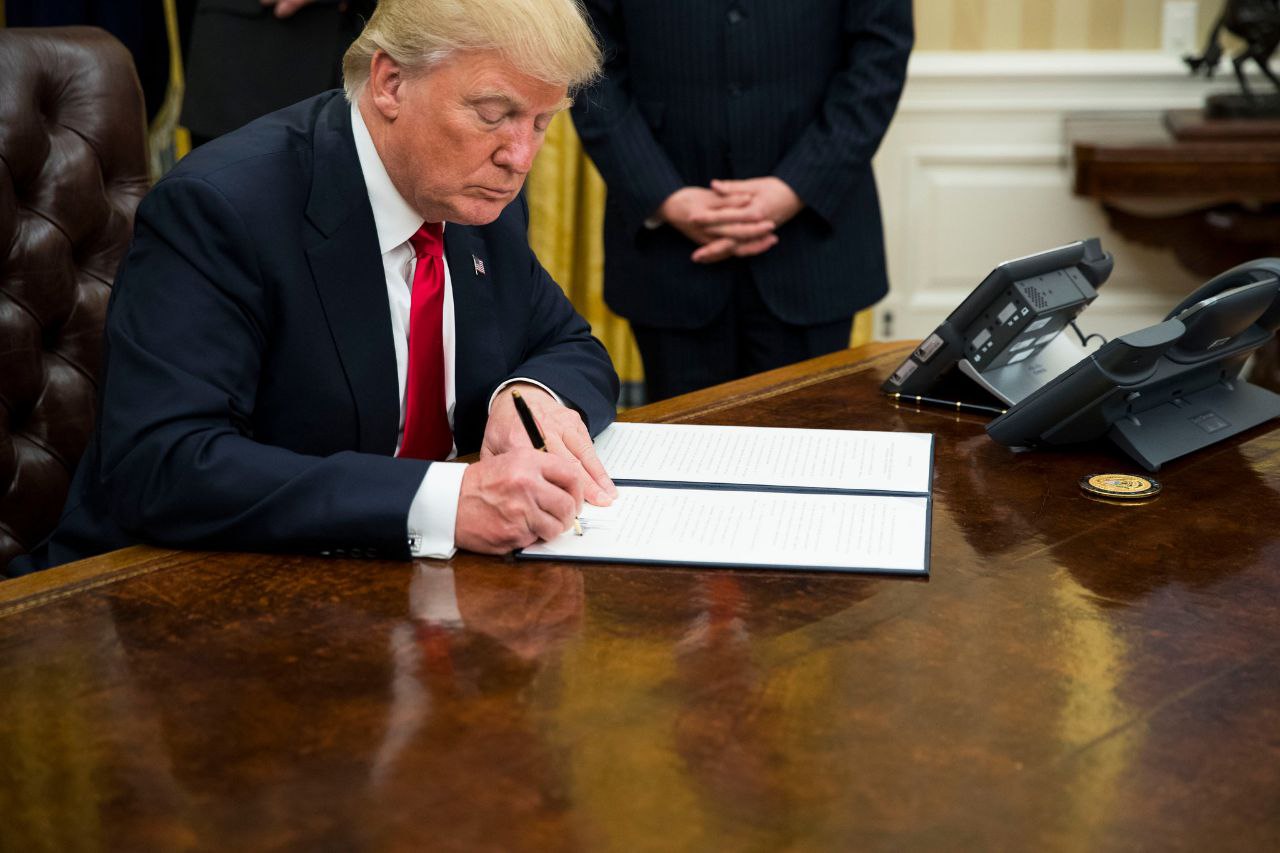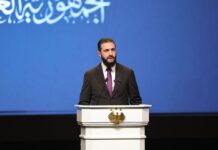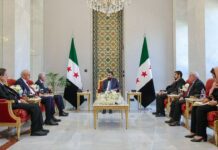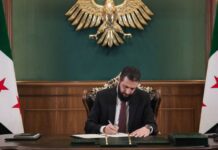
President Donald Trump signed an executive order June 30 ending most US economic sanctions on Syria, reversing decades of isolation and signaling a new era in American policy toward the war-torn country. The move drew immediate praise from Syrian officials and members of Trump’s administration.
Order Ends Broad Sanctions Yet Retains Targeted Measures
The order lifts five major executive orders and terminates the 2004 national emergency declared by former President George W. Bush. It also rolls back sanctions impacting thousands of Syrian entities, except those linked to Bashar al-Assad, human rights abuses, chemical weapons programs, terrorism, or the drug trade.
“This is another promise made and promise kept,” White House Press Secretary Karoline Leavitt said. “It opens Syria to global markets and investment without compromising US national security.”
Sanctions under the Caesar Syria Civilian Protection Act remain in force for now, though the order authorizes a review of suspension criteria. The Treasury Department also issued General License 25, permitting financial transactions with the transitional Syrian government, central bank and state-run enterprises.
Syrian Officials Hail ‘Turning Point’
Syrian leaders swiftly welcomed the policy shift. Foreign Minister Asaad al-Shaibani said the decision “opens the door of long-awaited reconstruction and development” and removes a “major obstacle” to economic recovery.
President Ahmad al-Sharaa, who met with Trump in May during a summit in Riyadh, called the order “historic.” Finance Minister Muhammad Barniyeh added that the move “ends a chapter of isolation,” allowing Syria to re-enter international financial systems and restore vital infrastructure.
Governor of the Central Bank of Syria (CBS) Abdulqader Hasri noted that more than 500 Syrian banks and financial institutions are now delisted, including access to the SWIFT network. “This enables revitalization of foreign financial transactions,” Hasri said.
US Officials Frame Move as Strategic Pivot
Secretary of State Marco Rubio praised the move as part of “a new chapter” for Syria. “US sanctions will not be an obstacle to Syria’s future,” Rubio said Tuesday. He confirmed that the State Department will reexamine Syria’s designation as a state sponsor of terrorism, and the status of Hayat Tahrir al-Sham (HTS) and its former leader, Sharaa.
Special Envoy Tom Barrack said the executive order reflects “a tedious but critical unwrapping” of outdated policies. He thanked Trump and Rubio for their leadership, noting that “Syria is now woven into the fabric of peace and prosperity in the Middle East.”
Remaining Sanctions and Future Outlook
While most economic barriers are removed, the US will maintain restrictions against specific individuals and organizations deemed threats to regional stability. The Treasury Department reiterated that the goal of sanctions is behavioral change—not perpetual punishment.
“This decision is not a blank check,” Treasury Secretary Scott Bissent said. “We will continue to hold destabilizing actors accountable.”
Internationally, the EU has followed Washington’s lead by ending its sanctions on Syria. At the UN, early discussions are underway to ease additional restrictions as Syria transitions into a post-conflict phase. Trump, for his part, reaffirmed his vision: “The sanctions did their job. Now it’s Syria’s time to shine.”








